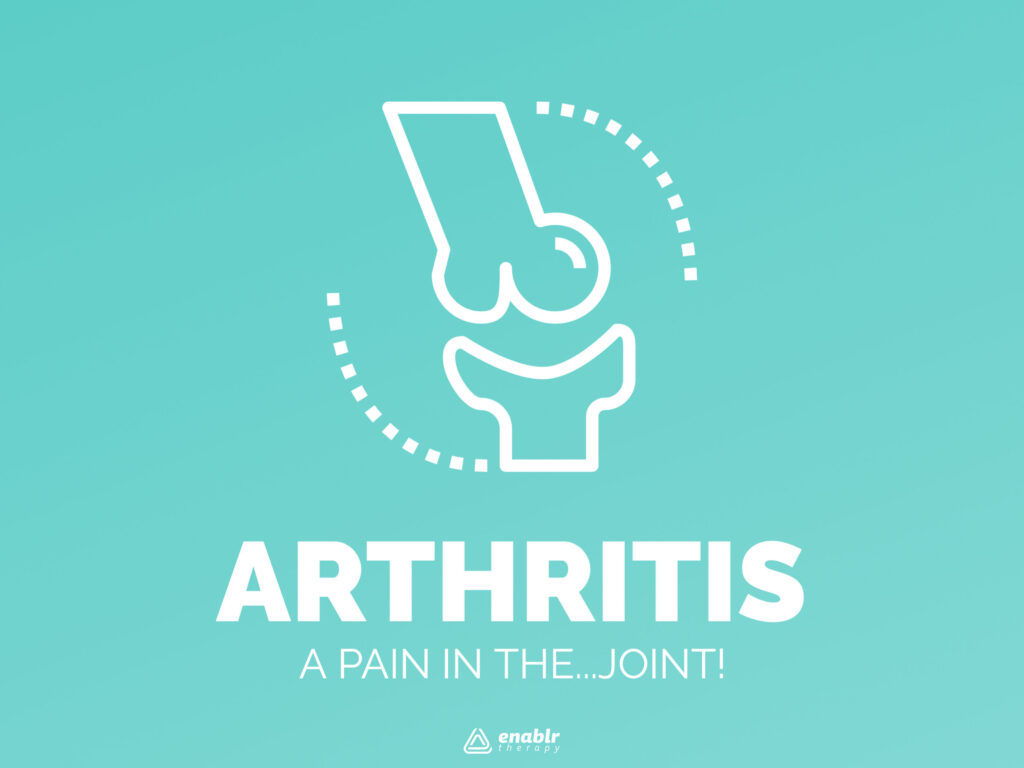
Arthritis, a condition often misunderstood as a consequence of aging, is much more than just joint pain. It’s a complex group of disorders that affect the joints, causing pain, stiffness, and inflammation. As one of the leading causes of disability worldwide, arthritis demands attention and understanding. In this article, we’ll delve into the intricacies of arthritis, exploring its types, symptoms, and management strategies.
Types of Arthritis
Arthritis isn’t a singular disease but an umbrella term encompassing over 100 different types. The two most common forms are osteoarthritis (OA) and rheumatoid arthritis (RA).
- Osteoarthritis (OA): Often referred to as degenerative joint disease, OA occurs when the protective cartilage that cushions the ends of bones wears down over time, leading to pain, swelling, and stiffness. A clear indication of arthritis is the presence of “crepitus”, which is an audible grinding noise when moving a joint. Arthritis can occur from obesity, genetics, trauma/surgery, and/or with age. The longer arthritis goes unmanaged, the worse the joint will become and can lead to needing a joint replacement surgery.
- Rheumatoid Arthritis (RA): Unlike OA, which primarily affects the joints, RA is an autoimmune disorder where the immune system mistakenly attacks the body’s tissues, particularly the synovium—a thin membrane that lines the joints. This leads to inflammation, pain, and eventually joint damage.
How can you manage arthritis?
Although there is no cure for arthritis, various treatments and self-care strategies can be used to manage symptoms and improve quality of life.
- Regular Exercise: The best thing for your joints is mobility. This allows fluid to move freely through the joint, helping to feed the cartilage and decrease stiffness. Low impact exercises like walking, swimming, and yoga can help to maintain range of motion and strength. Enablr Therapy has highly qualified therapists that know what exercises you need to not only improve joint mobility, but decrease the risk of any extra damage.
- Watch your weight: Excessive weight can be a major factor in early onset arthritis. Maintaining a healthy weight through a balanced diet that is rich in omega-3 and antioxidants and low in sugar and trans fat is important. Putting less pressure on your joints allows them to stay healthy longer, decreasing the risk of joint damage.
- Pain Management: When the joint swells, pain sets in. Pain will limit your movement and activity, which in turn makes the arthritis worse. Over-the-counter anti-inflammatories assist with decreasing pain, as arthritis causes inflammation within the joint. Alternating ice for 10 minute and heat for 15 minutes to the affected joint is also an effective method for pain reduction. Applying ice packs to the joint will relieve inflammation and swelling, while the heat will promote blood flow to the joint for decreased stiffness. Speak with your doctor and/or therapist about ways to manage your pain.
- Follow Joint Protection Principles: Avoid creating added pressure to joints by practicing good body mechanics and using larger joints for bigger movements, rather than relying on the small joints of your hands and fingers for big tasks. Keep your hands and fingers in neutral positions as much as possible to avoid deformities. Using alternative positions with the joints in a neutral aligned position and utilizing tools that reduce stress on joints can also protect your joints from damage. Go to Enablr Therapy’s article on joint protection for more information.
- Listen to Your Body: Balancing rest and activity will help maintain joint health. We use our hands and bodies for many activities every day. If pain or stiffness starts to develop, listen to your joints! Slow down, rest, and stretch.
- Medical Management: Working closely with your doctor is important as medications can play a significant role in pain management and slowing disease progression. Pain relievers, nonsteroidal anti-inflammatory drugs (NSAIDs), corticosteroids and disease-modifying antirheumatic drugs (DMARDs) are examples of commonly prescribed drugs that can help alleviate pain and reduce inflammation.
Arthritis is a multifaceted condition that impacts individuals everywhere. By implementing management strategies, you can improve your lifestyle and better cope with this condition. The future holds promise for improved outcomes with the advancements in medical management and research.
References
Centers for Disease Control and Prevention. (2019, February 5). 5 Proven Ways to Manage Arthritis. Centers for Disease Control and Prevention. https://www.cdc.gov/arthritis/basics/management.htm.



